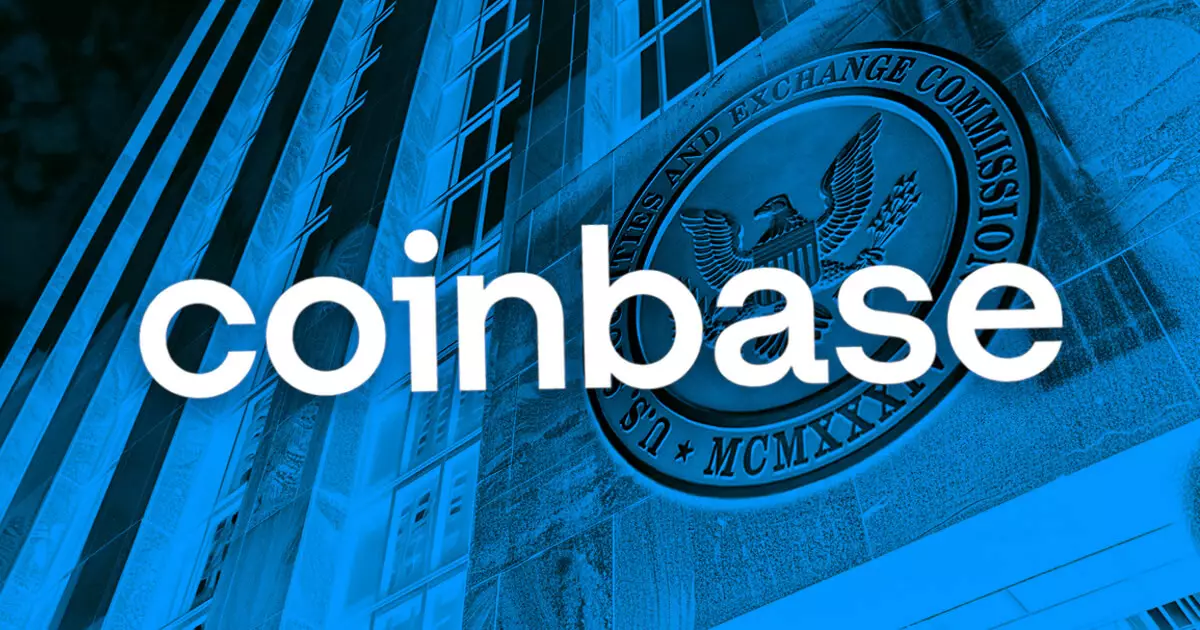In recent months, the legal confrontation between the United States Securities and Exchange Commission (SEC) and crypto exchange Coinbase has garnered significant attention within both financial and regulatory environments. Initiated in June 2023, this lawsuit marks a pivotal moment in how digital assets are interpreted under U.S. securities law. The SEC accused Coinbase of operating as an unregistered securities broker, claiming that several cryptocurrencies offered on its platform fall under the classification of unregistered securities, thereby violating established laws.
At the heart of this legal battle lies the Howey Test—a decades-old legal framework used to determine whether an asset qualifies as a security. Coinbase, however, staunchly contests the SEC’s assertions, arguing that the assets listed on their marketplace do not meet the criteria set forth by the Howey Test. Additionally, the exchange argues that the SEC has yet to provide adequate guidance regarding which cryptocurrencies fall under its jurisdiction. This ongoing legal wrangling has significant implications, as the results could reshape the regulatory landscape for cryptocurrencies in the United States.
As the case progresses, the SEC recently submitted a request for a four-month extension to conclude the fact discovery phase of its case against Coinbase. This request was brought to the attention of Judge Katherine Polk Failla on September 18, with the SEC aiming to push the discovery deadline from October 18, 2024, to February 18, 2025.
The SEC explained that the extension was necessary to thoroughly review a considerable volume of new documents—which includes over 133,582 unique files—as part of its compliant document production. According to the agency, this marks the first call for an extension throughout the legal proceedings. The extensive documentation and meticulous review showcase the SEC’s commitment to fulfilling court requirements, but it also raises questions about the efficiency and scope of the investigative process.
The SEC’s request also entails amendments to the Civil Case Management Plan which would affect subsequent deadlines, including critical motions and the preparation for trial. While both parties have consented to the requested extensions, this indicates a collaborative effort to ensure that the litigation proceeds smoothly. However, the extension could also mean that the resolution of the case might be significantly delayed, potentially prolonging the uncertainty hanging over the cryptocurrency industry regarding regulations.
The added time allows both parties to prepare adequately, but it simultaneously prolongs the limbo that the cryptocurrency market experiences regarding regulatory clarity. Stakeholders eagerly watching the lawsuit’s progress are well aware that the implications of this legal encounter extend beyond Coinbase alone; a ruling in this case could set a precedent for future regulatory approaches toward cryptocurrencies, affecting numerous entities operating in the space.
As the legal confrontation unfolds, Coinbase continues to push back against the SEC’s claims through its motions to dismiss, asserting that the accusations lack merit. The company argues that the SEC is essentially overstepping its boundaries, particularly in how it defines securities within the context of digital assets. The lack of clear definitions from the SEC regarding what constitutes a security in the rapidly evolving crypto landscape has been a significant source of contention.
Coinbase’s legal strategy highlights the broader industry concerns regarding regulatory clarity. Many in the cryptocurrency sector are advocating for more transparent guidelines that delineate the line between securities and non-securities to foster innovation while ensuring compliance. As other crypto entities watch the SEC-Coinbase case closely, the outcome will undoubtedly influence how they operate and advocate for regulatory frameworks in the future.
This lawsuit isn’t just a battle between the SEC and one cryptocurrency exchange; it serves as a litmus test for the regulatory treatment of digital assets in the U.S. As the SEC navigates its legal strategy, the crypto industry anxiously awaits a resolution that could either clarify the status of various tokens or add to the regulatory haze. Given that the case’s ramifications could resonate across national borders, it embodies a critical moment in shaping cryptocurrency’s future in the global marketplace.
The SEC’s request for an extension is more than just a procedural delay; it is a reflection of the complexities surrounding cryptocurrency regulation and the pivotal role that the SEC versus Coinbase case plays in determining the operational landscape for digital assets in the United States. As the industry watches closely, the outcome could set significant precedential changes in regulatory practices and foster an environment that either encourages or stifles innovation in the cryptocurrency arena.


Leave a Reply